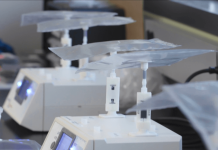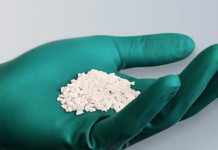Nervonik announced it completed the first-in-human clinical study of its peripheral nerve stimulation (PNS) device.
The Los Angeles-based startup designed its proprietary device to enhance therapy outcomes in the treatment of chronic pain. Nervonik’s device applies highly controlled electrical currents to peripheral nerves to modulate pain signals and provide pain relief.
Researchers originally developed the technology in the UCLA lab of Dr. Aydin Babakhani. Babakhani serves as the founder and CEO of Nervonik.
Related: Orthocell completes FDA 510(k) regulatory study for Remplir™
“This clinical study marks a tremendous step forward for Nervonik to test our groundbreaking approach to treat chronic pain,” said Babakhani. “This was a real team effort to engineer the system and then translate it to the clinic with world-class physicians and scientists.”
The study took place in Panama City, Panama, at the Punta Pacifica Hospital (affiliated with Johns Hopkins). It evaluated patients with chronic shoulder or knee pain. Dr. Timothy Deer, president and CEO of The Spine and Nerve Centers of the Virginias, surgically implanted small leads, utilizing fluoroscopy and ultrasound to target multiple nerves.
Deer and investigators connected the leads to miniaturized implantable pulse generators (IPGs) powered by a small, programmable wearable device. The team customized stimulation parameters for each patient through a dedicated app to achieve optimal effectiveness.
Dr. Ricardo Bermudez of Punta Pacifica served as principal investigator. Bermudez said the team expects to present results from the study in early 2025.
“The approach that we are taking to the treatment of chronic pain is founded in an understanding of how PNS affects the underlying neuroscience of chronic pain and helps us to better address approaches that can enhance the patient experience,” said Jeff Kramer, Nervonik chief scientific officer.”




